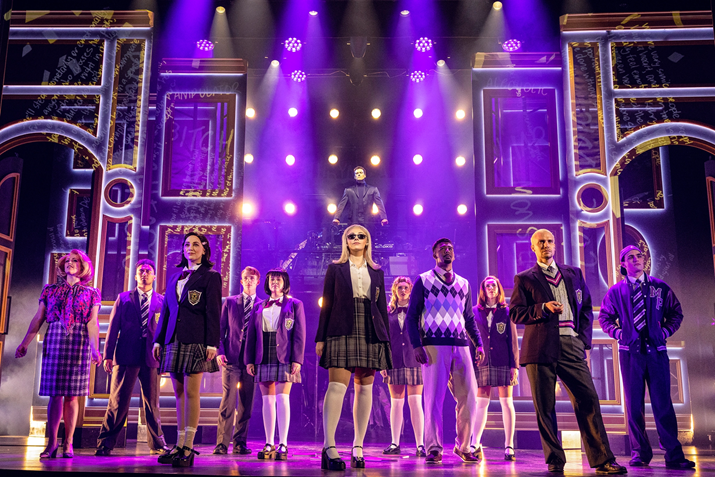What the Collapse of David Venn Enterprises Means for Australian Theatre
The cast of Cruel Intentions: The 90’s Musical, photographed by Nicole Cleary.
by Chris Peterson
In the world of live performance, the show must go on. But what happens when it can’t? When the lights go out, not because the final note has been sung, but because the producers can’t pay the power bill?
That’s the sobering story behind the collapse of David Venn Enterprises, the production company behind popular Australian tours of Cruel Intentions: The 90s Musical and Elvis: A Musical Revolution. In August 2024, the company entered voluntary liquidation, owing around $7.5 million. And the fallout has been devastating for the artists, crew, and vendors who were left in the lurch, many without pay, and most without answers.
Let’s be clear: no one goes into the arts for financial security. But there’s a difference between accepting risk and being blindsided. Dozens of cast and crew were reportedly given just eight days’ notice that their contracts were being terminated. Many had turned down other jobs. Some were owed $15,000 to $30,000 each in unpaid wages. Hotels, venues, and creative vendors were also left hanging. According to the liquidator’s report, the company had likely been “trading while insolvent” since June 2023.
This isn’t just an unfortunate business story. It’s a cautionary tale about how easily the most vulnerable people in our industry, the artists and backstage workers, can be left holding the bag when things go wrong.
According to news, the Fair Entitlements Guarantee stepped in to pay out around $744,000 in wages, which is a lifeline, but it didn’t cover unpaid super. That’s retirement money. That’s future security. That’s not a small detail, it’s a major breach of trust.
What makes this story even more complicated is what happened next. The company’s founder, David Venn, launched a new venture in early 2025: DV Live Pty Ltd. That company has already begun staging new productions, including Footloose and Thrones! The Musical Parody. Venn has claimed the new business is a way to generate income that can help repay old debts. He’s also entered into a personal insolvency agreement, pledging to pay back $304,000 over 18 months.
David Venn (Photo: Nicole Cleary)
Is that enough? Legally, perhaps. But emotionally? For those who were on tour, living out of hotel rooms and sharing wigs with previous cast members, according to one performer’s claim, it’s not so simple. There’s a feeling that artists were treated like expenses to be managed rather than people to be protected. And when a new company emerges almost immediately after the first one folds, it raises difficult questions. Is this recovery? Or is it reinvention at someone else’s expense?
To be fair, Venn has disputed some of the more sensational allegations, including a report of a $5,000 bar tab during the tour. He’s said he prioritized paying weekly wages and has invited cast and crew to contact him directly. That’s something. But the damage has already been done.
What’s most unsettling is that this isn’t an isolated incident. Live performance companies across the globe are struggling with rising costs, unpredictable ticket sales, and the lasting aftershocks of COVID-19. But most of those companies aren’t leaving workers behind while the producers move forward.
There needs to be a conversation, at the government level, within unions, and across the creative industries, about how to better protect the people who make these shows happen. Stronger worker protections. Greater financial oversight. And maybe a system that prevents producers from simply walking away from one failed venture and launching the next without accountability.
Theatre is resilient. Artists are used to making something out of nothing. But resilience shouldn’t be a license for exploitation. When the curtain falls, someone still has to sweep the stage. Let’s make sure they’re being paid to do it.

